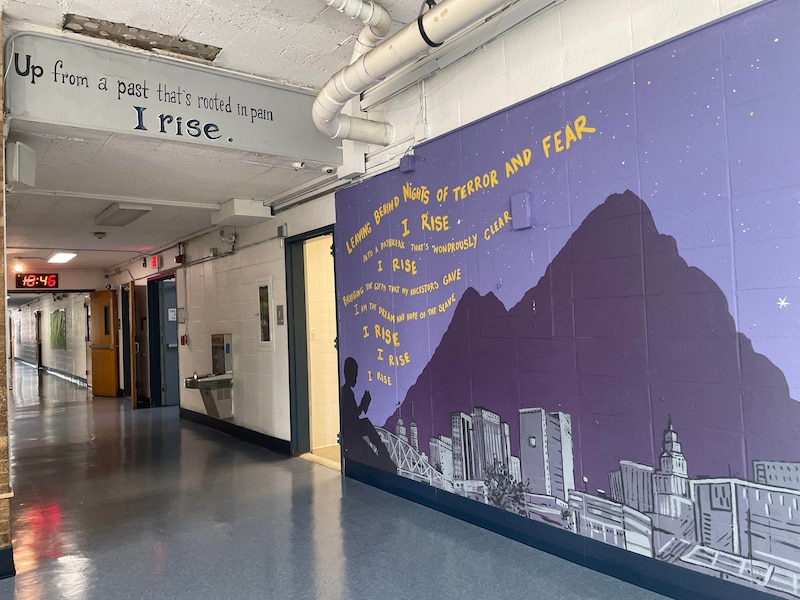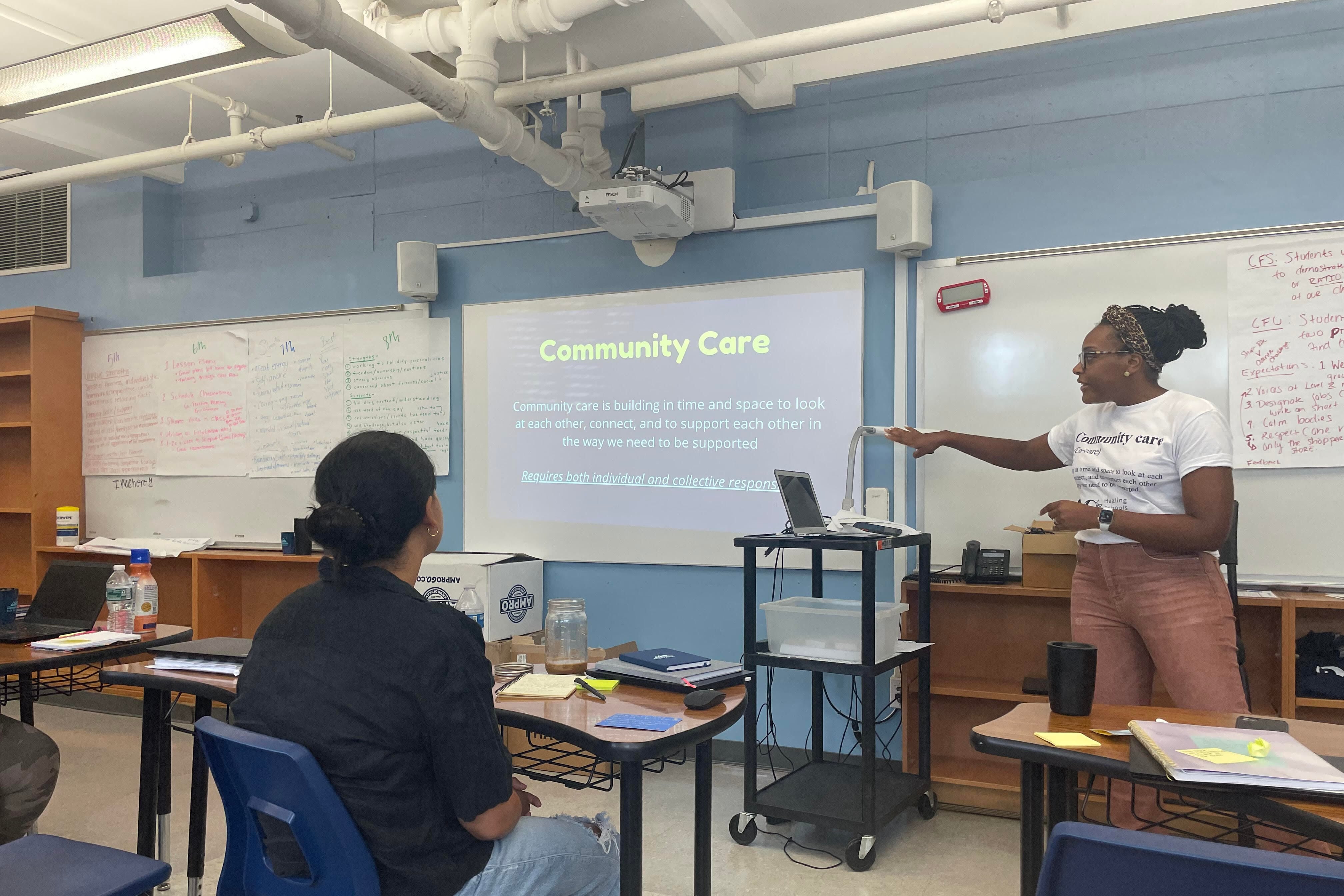In a room full of Newark teachers, Thomas Luna, a seventh grade science teacher, took a moment to reflect on the previous school year filled with unprecedented challenges.
Luna jotted down his thoughts in a notebook while other colleagues in the room sighed as they remembered what it feels like to be an educator during the pandemic. When they were done, some took turns sharing their reflections with the group:
“Expressing how I was feeling was really important to me.”
“I needed space.”
“It was hard to focus.”
Their fellow teachers, sitting at desks, snapped fingers and nodded heads in appreciation.
They were healing, said Dr. Wenimo Okoya, founder of the Healing Schools Project, who led the exercise for KIPP Rise Academy teachers on Thursday, the week before students return to their classrooms.
After two years of pandemic-related stress, the stakes are high for schools and educators in Newark and across the country as students show an increase in emotional and social needs. Teachers and principals are also experiencing more job-related stress at a rate roughly twice that of other working adults, according to a new RAND Corporation survey.
A former Newark Public Schools teacher, Okoya believes that her work helps teachers heal and grow from stressors by creating a stable environment and allowing students to thrive in a healthy school setting. She partners with schools and districts to address and prevent teacher burnout and rebuild school communities after two years of pandemic-era uncertainty.
“During the pandemic, I and my other teacher friends and educators were really burned out from what we were experiencing during the peak of the pandemic,” said Okoya, who launched Healing Schools Project last year. “We started holding virtual healing circles with friends of friends and people wanted more of that.”
Okoya’s work includes workshops focused on fostering connection and care among school staff and leading healing circles as a way to connect with colleagues and promote better mental health at work. At KIPP Rise Academy, which has roughly 50 teachers and 460 fifth through eighth grade students, school leader Kyle Newsome said he invited Okoya because he’s responsible for ensuring the well-being of his staff and students.

“If we’re really being honest, community work is people work,” Newsome said. “We’re a people-driven community and there’s no way to even do that if we don’t have some type of priority around it.”
Kerry-Ann McGaw, a fifth and sixth grade special education teacher at KIPP Rise and an educator for 14 years, said it’s more important than ever to have a space with other educators to talk about day-to-day life in the classroom.
For McGaw, having conversations with colleagues throughout the day helps her feel better about her role. She also practices the same coping strategies she teaches her students to deal with life in and out of the classroom.
“When I need to reset in the classroom, I model it by counting down on my fingers,” McGaw added. “I tell students at the beginning of the school year these are the things you can do when you feel frustrated, anxious, and overly excited. Us helping kids is, in turn, helping us too.”
Other teachers participating in Okoya’s exercise said having morning rituals, creating boundaries for themselves, and affirming each other are also ways they cope with the stressors of teaching.
“Providing teachers an opportunity to take care of themselves puts them at a place where they are not looking at students’ issues through a deficit,” said Tiffany Walker, founder of Journey Therapy Center in Clifton, New Jersey, and former program manager for youth development programs.
A clinical social worker, Walker adds that teachers need to create physical and emotional boundaries and make adjustments throughout the school year to prevent burnout and ensure they have enough energy for their families and personal lives.
“What are some of the things that you can commit to in the school year,” Walker added, “and what are some of the things that you have to make adjustments to so that you can ensure you’re showing that wellness for yourself?”
Okoya’s work primarily focuses on student trauma – a critical factor in Newark, where many students are exposed to poverty, discrimination, violence, and housing inequality. But in order to tackle student trauma, adults have to invest in healing their own traumas, especially after the pandemic, Okoya said.
“For our young people that connection is so critical because connection, support, and relationships are the primary factors to overcome trauma, especially in childhood but even in adulthood,” Okoya added.
Amid long-standing concerns over teacher retention, staff shortages, and COVID protocols, Newsome says he’s getting a head start on the year by creating healthy spaces for students. His goal is to invest in his teacher’s emotional and mental well-being for the sake of the students. Healthy teachers, he said, make great outcomes for students.
“Everyone here is excited and that’s something that I hoped for but I had my own concerns because it’s been so rough,” Newsome. “If we hope for the best, it’s gonna feel different for the kids.”
Jessie Gomez is a reporter for Chalkbeat Newark, covering public education in the city. Contact Jessie at jgomez@chalkbeat.org





